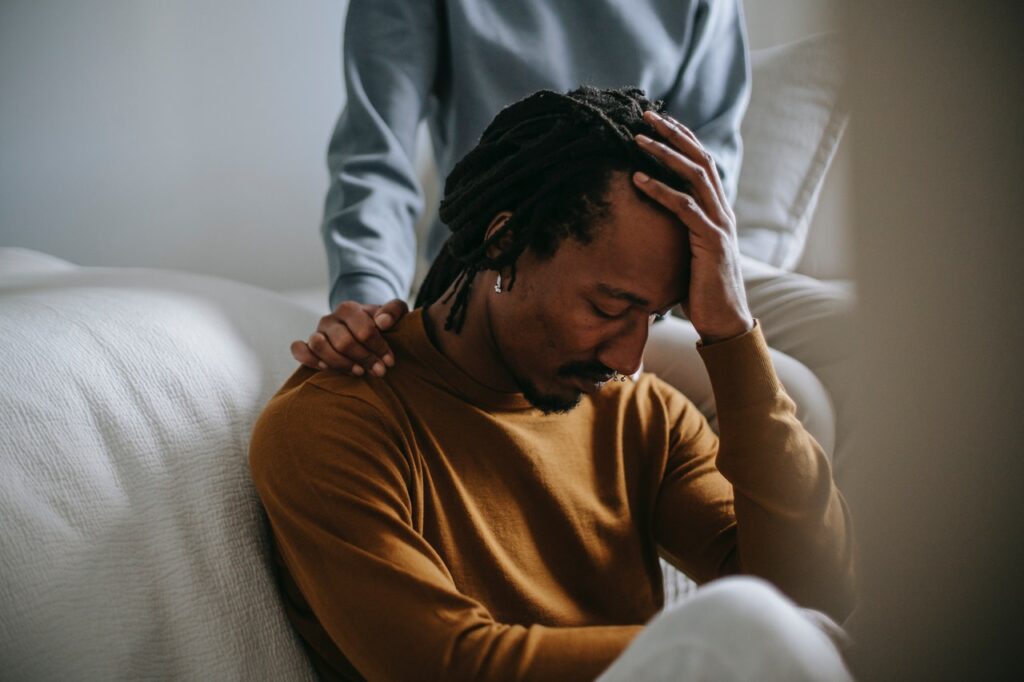Coping With Grief: Ways To Restore Your Mental Wellbeing

The death of a loved one can be an emotional and challenging time. It’s common to feel grief for weeks or even months after the loss, but it is essential that you find ways to cope with this. If you are struggling with your mental wellbeing, there are many things that you can do to help restore yourself to feeling like yourself again! These coping strategies will bring peace and comfort into your life.

Express and Release Your Emotions
The grieving process is often a long and painful one. Expressing your emotions can help release pent-up emotions that might not allow you to heal properly if left unchecked. For some people, talking about the loss they are experiencing with others helps them feel better, while for others writing their thoughts out on paper or journaling might help relieve the stress.
The emotional journey you are on might feel like an overwhelming one, but the more you allow yourself to process your feelings and express them rather than holding them in, the better off you’ll be during this difficult time of loss. You might not know how you want to express your grief, but that’s okay. The critical thing is exploring this process and finding out what works for you to heal during this difficult time in your life.
Preserve Memories
Ideally, you should keep memories in their original form. However, if you have physical copies of home videos and important photos, keep them close by. Caring for your sentimental items will help preserve the memory.
You can also have cremation ash jewelry to help you preserve your beloved memories. You’ll remember them whenever you look at the jewelry because the jewelry will act as a reminder.
In many cases, it’s not practical to hold on to specific memories, so you have to let them go for your mental wellbeing. You may have to give up a cherished teddy bear or doll from your childhood, for example.
Another way to preserve memories is by talking about them. Whether it’s through storytelling or journaling, the act of retelling what happened can help you better understand and process an emotion-laden experience.
Join a Support Group
If you’re struggling to cope with the death of a loved one, then it may be helpful to join a support group. These groups can help distract you from your pain and provide company for people in similar circumstances. Plus, they usually have an expert on hand who has experience dealing with grief – which means they know what questions and answers will help you.
Sharing the burden of grief with others who are going through the same thing can be helpful to everyone involved in it and serve as an outlet for emotions that may otherwise go unchecked.
Talk About It When You Can
It is essential to talk about your feelings when you can. Keeping them bottled up inside will only make it worse, and they may resurface in unexpected ways such as anger or depression. It’s okay if the words don’t come out right away; just try to say something because anything helps. Don’t worry about feeling self-conscious; you are not alone in this.
Talk to a friend or family member about your thoughts and feelings when you can’t seem to find the words yourself. Ask for their advice, tell them what has been on your mind lately, or just try talking through whatever is bothering you at the moment. You might be surprised by how helpful it is to discuss the issue with someone who cares about you.
Comfort Your Other Family Members
Comforting your other family members is crucial to ensure that you don’t let all of the hard work and love for them go unnoticed. More importantly, it’s wise to help kids cope with death. The best thing about this is that it doesn’t take much effort on your end, just some time to think about what to do or say.
Some ways to comfort your family members include:
- Offering a shoulder for them to cry on. This can be as simple as sitting next to them and holding their hand or using touch in other ways like hugs, head rubs, or pats on the back.
- Talking about memories with them. This can be about the person who died or even memories from your childhood.
Conclusion
You’re human and will experience some form of grief, whether it be the death of a loved one or the end of a relationship. Therefore, it’s vital that you have someone to talk through your feelings with so they don’t bottle up and cause more emotional pain.





